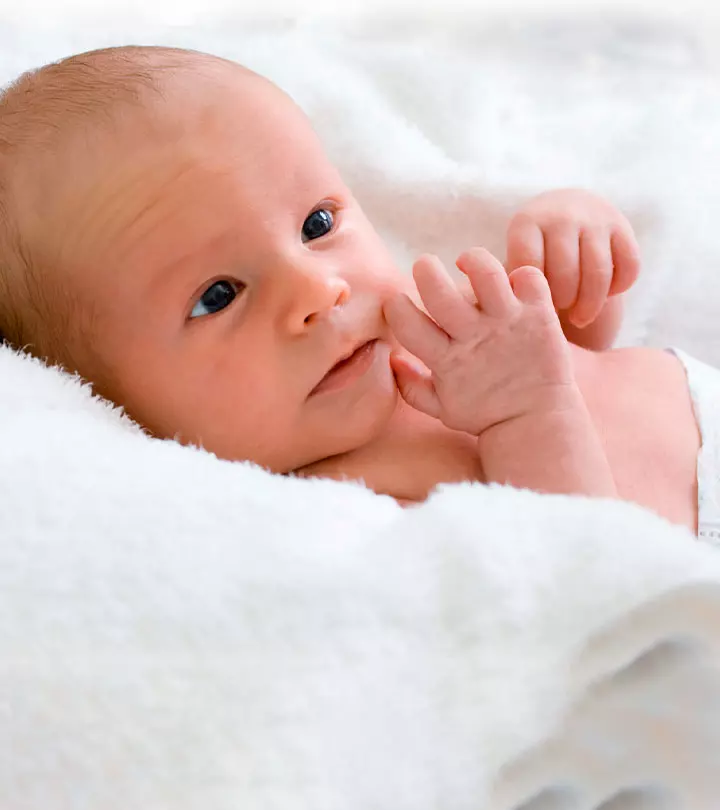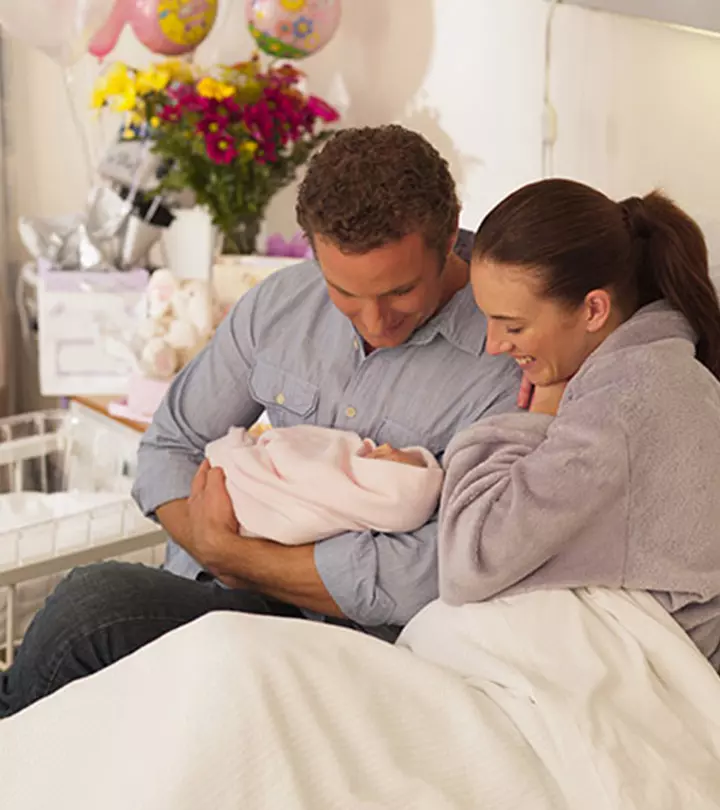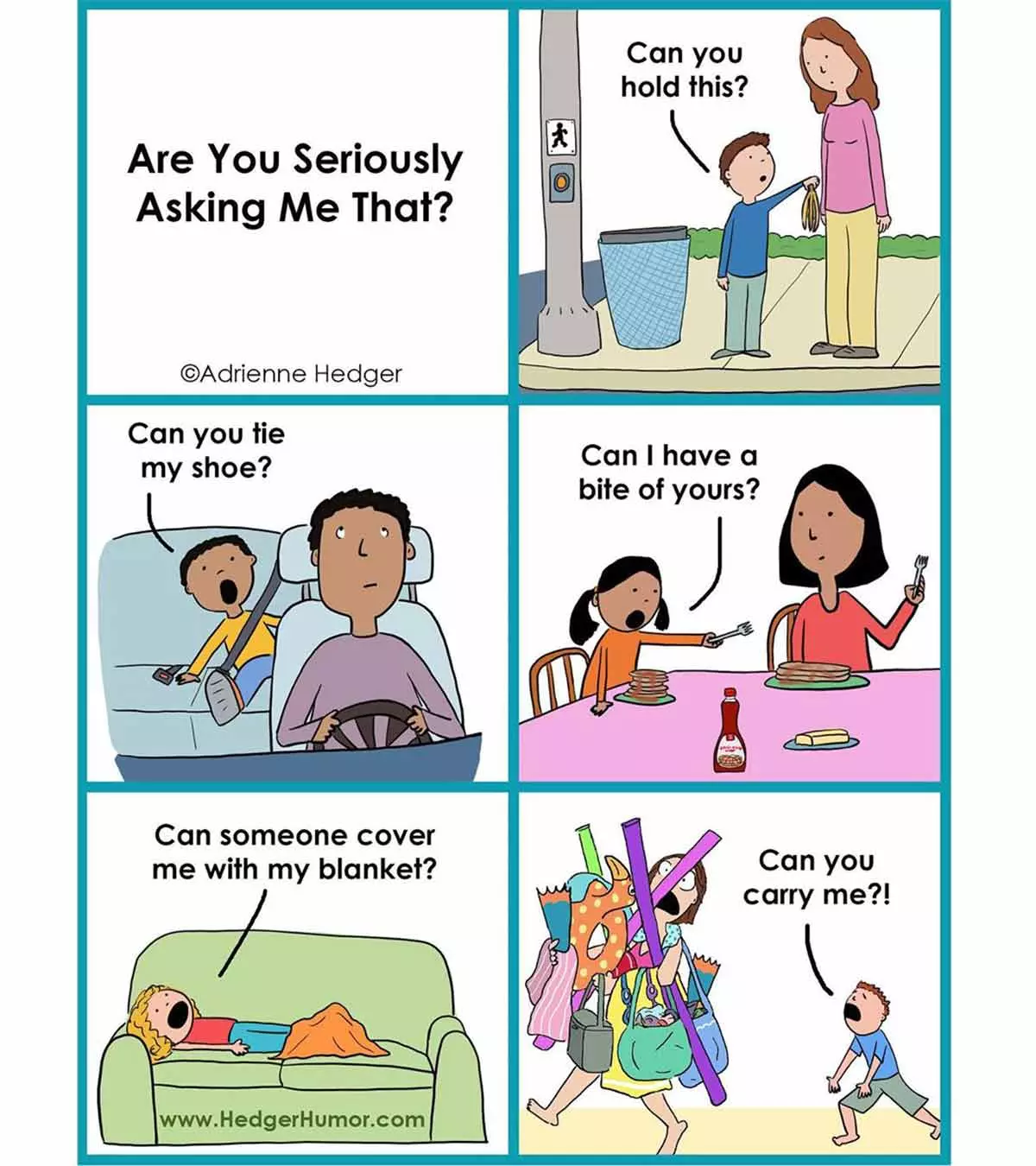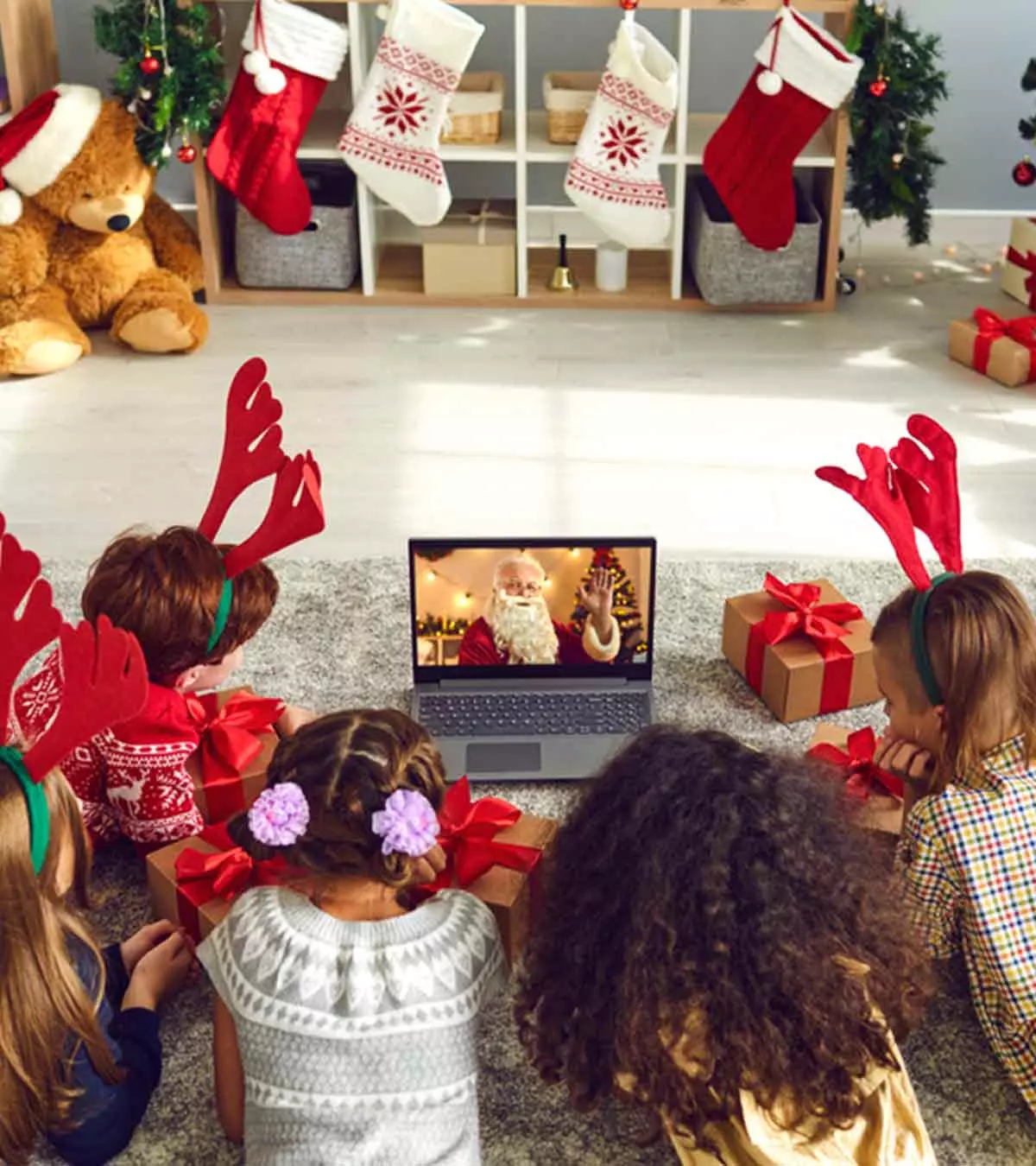

Image: iStock
Baby-care means sleepless nights. Anything else that you’ve heard is cliched. You very well know what caring for a newborn involves. But there are a lot of things that you are not told about babies. So if you encounter these surprises, you might as well be alarmed. But more often than not, these things shouldn’t bother you as they settle in due course of time.
1. Your baby’s head is not up to the mark
More so because you had anticipated a baby that looked like that poster-baby pinned up there – perfect head circumference, besides the angel-looking face. But for that cone-shaped head! Your baby has it because it spent hours in your pelvis whence its skull molded to fit into the birth canal.(1)
The openings of the skull apparently help the head pass through the birth channel while preventing any brain injury or skull fractures. Babies born through C-section or buttocks or feet first might have more rounded head.(2) Apart from the head, your baby might surprise you with some facial imperfections too – for instance, the swollen eyes of your baby may be due to the fluids gathered under his skin. There might small bruises on your baby’s scalp and face if vacuum extractor or forceps were applied in the delivery. Your baby’s nose could also appear a bit squashed if it slid out on its nose. But all these features last only for a few weeks and the flaws disappear as your baby begins to grow.
2. Your baby is jumpy
You might find your baby moving its hands and limbs or its body with a jerk. Your baby is born with something called the Moro or startle reflex.(3) After spending months all curled up in the fluid medium of the womb, your baby is suddenly exposed to open space around it with no restrictions. It flaps its arms because it feels that it is falling or is perplexed. The quivers would disappear after the third month. Until then the developing nervous system would send more than necessary electrical impulses, thereby the trembling. If your baby doesn’t stop trembling even when you hold it, it might be time you see the doctor.
3. Swollen genitals in newborns
The mother’s hormones keep circulating in the body and enlarge the testicles in boys and lead to swelling of labia in girls. The swelling subsides in a couple of days. Don’t forget that the extra fluids trapped in the tissue apart from the pressure exerted on your baby during birth could cause the swelling. At times the swelling can also be attributed to bruising at birth.(4)
4. Your baby seems to be hungry all the time
You might be puzzled that your baby keeps demanding for a feed all the time. At times you might worry if you are making adequate milk for your baby. What you need to know is that breastmilk is digested and absorbed quickly, so exclusively breastfed babies tend to get hungry more frequently. Also, it would only prepare you to meet the milk supply as your baby grows. So if your baby is looking for a feed more frequently, it is part of the growth spurt.
At times all your tiny baby may need is the cuddle of a mother. So if it has had a feed just then but still crying, it might as well be looking for you.
5. Your baby has cold hands and feet
Your baby’s blood circulation is oriented towards vital organs where blood supply is needed more than in hands and feet. This is why your baby’s hands and feet are cold and its little fingers and toes might look pale or feel chilly. As your baby becomes mobile, its blood circulation will get better.
6. Your baby sneezes all the time
Frequent sneezing does not always mean that your baby has a caught a cold. Sneezing is one way for your baby to open the respiratory passages of airborne particles or congestion. Sneezing also reopens nostrils that are closed temporarily.
7. Blood in baby’s diaper
That maternal hormones (estrogen) circulating in your baby in the first few weeks after birth could be responsible for bloody vaginal discharge in newborn girls. At times concentrated urine might also look dark. Consult a doctor if you see bright red blood though.
8. Blister on baby’s lips
Some babies have a blister on lips at the time of birth because they were sucking their thumb in mother’s womb. But a blister or nursing tubercle could also appear because of vigorous sucking on breast or bottle. The blisters occur due to friction related to suckling. At times it hardens as a callus thereby making the grip stronger over the nipple, but causes no discomfort to the baby. The callus disappears in a few months. However, the blisters must not impede your baby’s feeding sessions. They are harmless and painless and vanish on their own.
9. Flaky skin in babies
Your baby’s skin is protected by a white waxy material called vernix caseosa while in the womb. After birth, when your baby is exposed to air, the vernix begins to corrode and begins to peel off while drying the upper layer of the skin. The flaky skin is more visible on hands and legs. You should never attempt to clear the flakes off yourself as you might be peeling off the skin that’s not meant to shed yet. Flaking lasts for the first couple of weeks or so.
10. Bizarre skin features
Your baby might be covered in soft hair called lanugo which is usually more common in premature babies. You might also observe tiny red spots called petechiae, which is blood leaked from small blood vessels from the skin. Due to instability of blood circulation of newborns, some might even show mottling of skin which is nothing but reddish, small pale areas.
Did your baby show any of these symptoms? Write back to us to share your story!
Community Experiences
Join the conversation and become a part of our nurturing community! Share your stories, experiences, and insights to connect with fellow parents.












